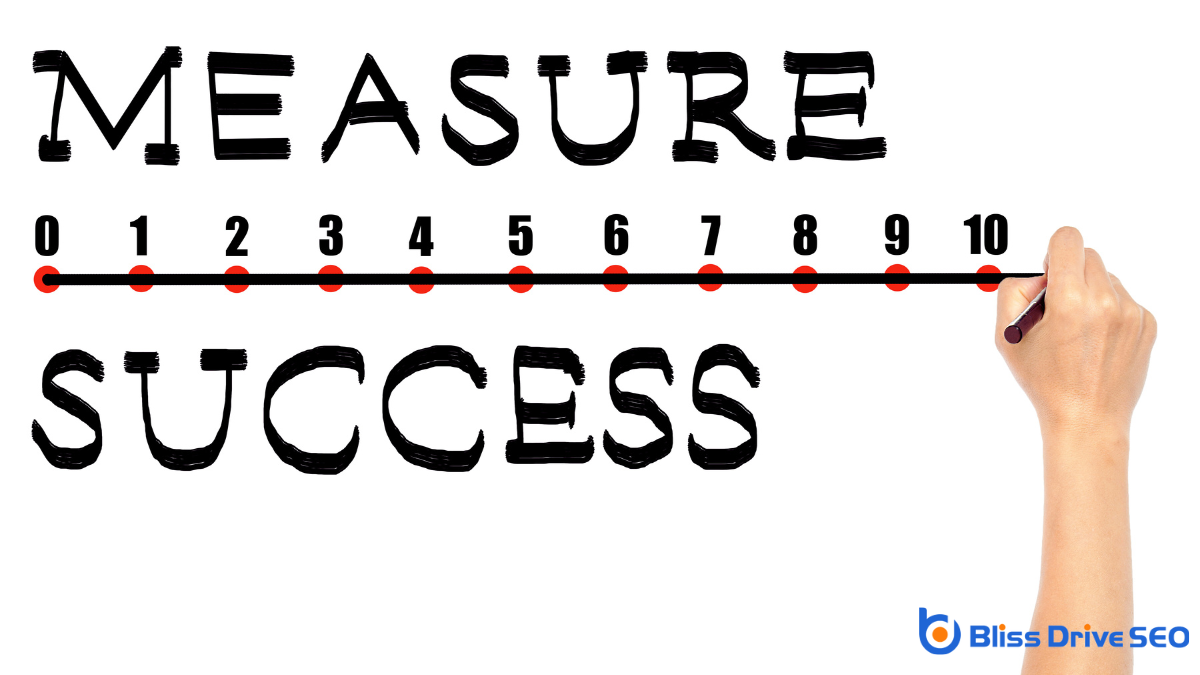Digital Marketing Services
Learn More About Us

In content marketingA strategic approach focused on creating and distributing valuable, relevant, and consistent content..., your primary goals are to build brand awarenessThe extent to which consumers are familiar with the qualities or image of a particular brand., establish industry authority, foster customer engagementThe level of interaction and involvement a customer has with a brand., and drive desired customer actions. You'll create engaging and relevant content that helps your brand stand out, utilizing SEO and social media for visibility. By sharing high-quality insights, you position your brand as a trusted authority in your field. Tailoring content to your audience's interests fosters engagementThe interactions that users have with a brand’s content on social media., encouraging them to interact and build loyalty. Clear calls to action guide your audience toward taking meaningful steps. These key elements form the backbone of an effective content strategyA plan for creating, publishing, and managing content to meet business goals. that encourages deeper understanding and involvement.
Building brand awareness is vital for any business looking to establish a strong market presence. You need your audience to recognize and remember your brand when they encounter it. Content marketing plays a pivotal role in achieving this goal. By creating and sharing valuable content, you can keep your brand at the forefront of potential customers' minds.
First, focus on developing content that's relevant and engaging. Whether it's blog posts, videos, or social media updates, make sure your content resonates with your target audience. Consistent and authentic content helps people understand who you're and what your brand stands for. It's important to maintain a consistent tone and style across all platforms.
Next, leverage search engine optimization (SEO) to enhance your visibility. Use relevant keywordsWords or phrases that users type into search engines to find information. strategically so your content appears in search results when potential customers look for related topics. This increases the chances of them encountering your brand.
Additionally, don't underestimate the power of social media. Share your content on platforms where your audience spends time. Engage with them through comments and messages, fostering a sense of community and trust. This interaction not only builds awareness but also strengthens your brand's relationship with your audience.

While brand awareness sets the stage for recognition, establishing industry authority positions your brand as a leader in your field. It's not just about being known; it's about being trusted. When you establish authority, your audience views you as a reliable source of information and innovation. This means creating content that demonstrates expertise and showcases your understanding of industry trends and challenges.
To build authority, focus on producing high-quality content that addresses pressing issues or answers common questions within your industry. Share insights, research, and case studiesIn-depth analyses of specific instances or examples to highlight success stories or lessons learned.... that reflect your knowledge and experience. When your audience sees value in your content, they're more likely to trust your brand's capabilities and recommendations.
Engage with your industry by actively participating in discussions and collaborations. Guest bloggingWriting and publishing articles on other websites to reach a new audience., speaking at events, or featuring in podcastsAudio content distributed through digital channels, often in series format. can further solidify your authority. Always back your statements with reliable data and examples, reinforcing your credibility.
Engaging with your audience isn't just a nice-to-have; it's essential for cultivating a loyal customer base. When you focus on fostering customer engagement, you're building relationships that go beyond transactions. This means creating content that resonates with your audience, inviting them to share their thoughts, and actively participating in conversations. Through engagement, you show that you value their opinions and experiences, which in turn encourages brand loyaltyThe tendency of consumers to continue buying the same brand's products or services..
To effectively foster engagement, tailor your content to address your audience's interests and needs. Use questions, polls, and interactive contentContent that requires user interaction, such as quizzes, polls, or calculators. to invite participation. Encourage comments and discussions on your blog posts or social media platforms. Respond promptly and genuinely to feedback, showing you're listening and willing to connect.
Content marketing thrives when it sparks dialogue. Consider hosting webinars or live Q&A sessions where your audience can interact with you in real-time. These activities not only provide value but also make your audience feel heard and appreciated.
In the world of content marketing, driving customer actions is vital for achieving tangible business results. You're not just creating content for the sake of it; you're aiming to inspire specific actions from your audience. These actions could range from signing up for newsletters, making a purchase, or sharing content with their network. It's essential to have a clear call-to-action (CTA) in your content, guiding your audience on what steps to take next.
To effectively drive these actions, you need to understand your audience's needs and motivations. By aligning your content with their interests, you increase the chances they'll respond positively. For example, if your audience values eco-friendly products, highlighting sustainability in your content can encourage them to buy.
Additionally, tracking metrics like click-through rates and conversionThe completion of a desired action by a referred user, such as making a purchase or filling out a fo... rates helps you measure success. These insights allow you to refine your strategy, ensuring you're continuously driving meaningful actions.

To create valuable content, you must first understand your audience's needs and preferences. By addressing their concerns and interests, you foster trust and establish yourself as an authority in your field.
This approach not only encourages engagement but also inspires your audience to share your content with others.
When you immerse yourself in content marketing, understanding your audience's needs is essential for creating valuable content. You can't just guess what they want; you need to dig deep and get to know them. Start by researching their demographics, interests, and pain points. Use surveys, social media interactions, and feedback to gather insights. This isn't just about collecting data—it's about truly listening to what your audience is telling you.
Think about the questions they're asking and the problems they're facing. Your content should address these directly, providing them with solutions and insights. Remember, you're not just creating content for the sake of it; you're crafting something that resonates with your audience on a personal level. This connection is key in making your content stand out.
Tailor your content to fit their preferred formats and platforms. Do they prefer videos, blogs, or podcasts? Knowing this helps you deliver your message in a way they'll appreciate and engage with.
Ultimately, when you align your content with your audience's needs, you're more likely to capture their attention and foster a lasting relationship. This understanding lays the groundwork for successful content marketing.
Building trust and establishing authority are key components of content marketing that can't be disregarded. When you create valuable content, you're not just sharing information; you're demonstrating expertise and reliability. People are more likely to trust your brand when they see that you provide insights and solutions that genuinely help them. This trust is pivotal because it leads to long-term relationships and customer loyaltyThe likelihood of customers to continue purchasing from a brand over time..
To foster trust, focus on producing high-quality, accurate, and relevant content. Guarantee that your information is well-researched and up-to-date. When your audience sees the value in what you offerThe specific product or service being promoted by affiliates., they'll view you as an authority in your field.
Consistency also plays an essential role. Regularly updating your content shows that you're actively engaged and invested in providing the best for your audience.
Additionally, use a tone that resonates with your audience's needs and preferences. Be transparent and honest in your communication. Address your audience's pain points and offer practical solutions. By doing so, you reinforce your credibility and position your brand as a trusted source of knowledge.
Ultimately, fostering trust and authority through content sets the foundation for meaningful connections with your audience.
Engagement and sharing are key components of successful content marketing. To encourage your audience to interact and share, focus on creating content that resonates and adds value. When readers find your content useful, they're more likely to comment, share it with friends, or even become loyal followers. Here's how you can achieve that:
Fostering customer loyalty through content marketing isn't just a nice-to-have; it's essential for sustaining long-term business success. When you consistently deliver valuable, relevant content, you build trust with your audience. They start seeing you as an authority, someone who understands their needs and challenges. This perception encourages them to stick around, engage with your brand, and even advocate for it.
To enhance loyalty, focus on creating content that speaks directly to your customers' interests and pain points. PersonalizationTailoring content and offers to individual users based on their behavior, preferences, or demographi... plays a key role here. When your audience feels that you understand them, they're more likely to develop a strong connection with your brand. Use customer feedbackInformation provided by customers about their experience with a product or service, used to improve ... to tailor your content, showing that you listen and care.
Maintaining a consistent brand voiceThe consistent tone and style of communication used by a brand across all channels. across all content platforms also strengthens customer loyalty. It provides a familiar experience that customers can rely on, reinforcing their trust in your brand.
Additionally, offer exclusive content or rewards to loyal customers, making them feel valued and special.

Once you've established customer loyalty through strategic content marketing, the next step is understanding how effective your efforts are. Measuring content success isn't just about vanity metrics like likes or shares. It's about evaluating how your content drives tangible results. To do this, focus on key performance indicators (KPIs) that align with your business goals.
Here's a simple guide to get you started:
In content marketing, your goals are clear. You're building brand awareness to make sure people know who you are. Establishing industry authority assures them you're the expert. By fostering customer engagement, you're creating a dialogue that builds relationships. Driving customer actions means your content leads to real-world results. Creating valuable content enhances customer loyalty, which keeps them coming back. Finally, measuring content success lets you refine your strategy and achieve even greater success.
